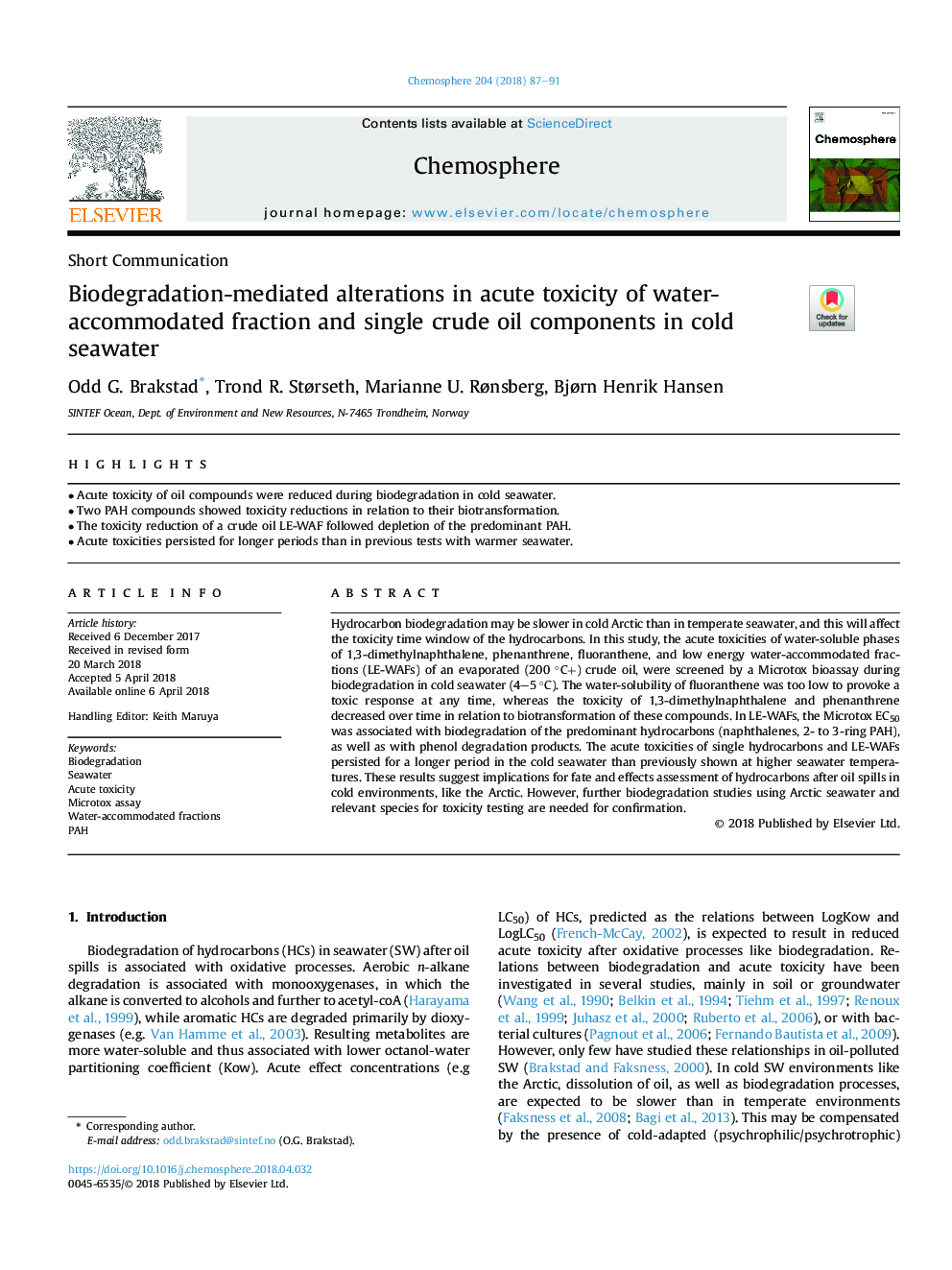| Article ID | Journal | Published Year | Pages | File Type |
|---|---|---|---|---|
| 8851162 | Chemosphere | 2018 | 5 Pages |
Abstract
Hydrocarbon biodegradation may be slower in cold Arctic than in temperate seawater, and this will affect the toxicity time window of the hydrocarbons. In this study, the acute toxicities of water-soluble phases of 1,3-dimethylnaphthalene, phenanthrene, fluoranthene, and low energy water-accommodated fractions (LE-WAFs) of an evaporated (200 °C+) crude oil, were screened by a Microtox bioassay during biodegradation in cold seawater (4-5 °C). The water-solubility of fluoranthene was too low to provoke a toxic response at any time, whereas the toxicity of 1,3-dimethylnaphthalene and phenanthrene decreased over time in relation to biotransformation of these compounds. In LE-WAFs, the Microtox EC50 was associated with biodegradation of the predominant hydrocarbons (naphthalenes, 2- to 3-ring PAH), as well as with phenol degradation products. The acute toxicities of single hydrocarbons and LE-WAFs persisted for a longer period in the cold seawater than previously shown at higher seawater temperatures. These results suggest implications for fate and effects assessment of hydrocarbons after oil spills in cold environments, like the Arctic. However, further biodegradation studies using Arctic seawater and relevant species for toxicity testing are needed for confirmation.
Related Topics
Life Sciences
Environmental Science
Environmental Chemistry
Authors
Odd G. Brakstad, Trond R. Størseth, Marianne U. Rønsberg, Bjørn Henrik Hansen,
